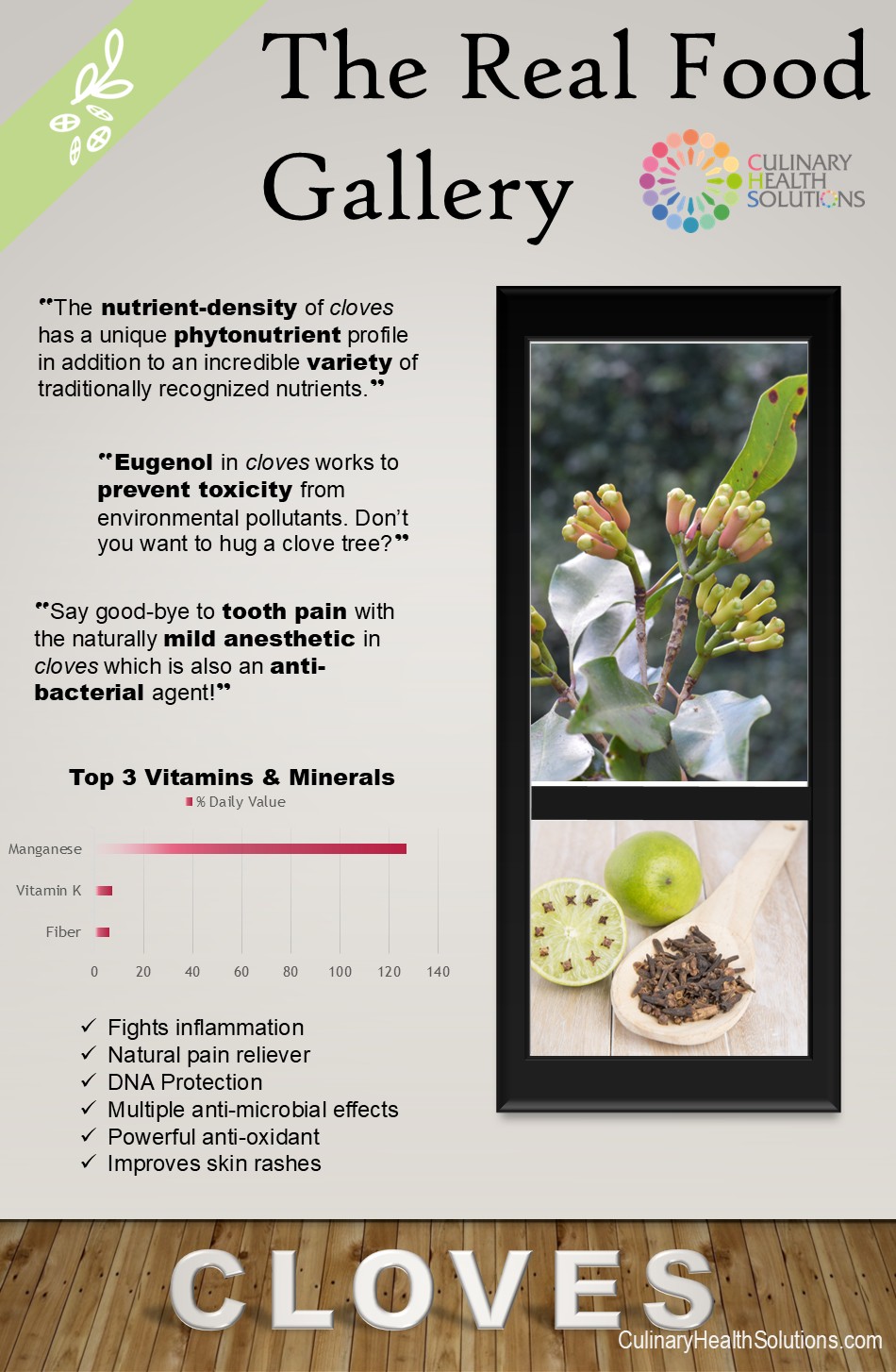Cloves

Like other spices, cloves are available throughout the year. They are renowned for providing their uniquely warm, sweet and aromatic taste to ginger bread and pumpkin pie, but they can also make a wonderful addition to split pea and bean soups, baked beans and chili.
Cloves are the unopened pink flower buds of the evergreen clove tree. The buds are picked by hand when they are pink and dried until they turn brown in color. Cloves are about 1/2inch long and 1/4inch in diameter and with their tapered stem, they resemble tiny nails. In fact, their English name is actually derived from the Latin word clavus, which means nail. Although cloves have a very hard exterior, their flesh features an oily compound that is essential to their nutritional and flavor profile.
Clove contains significant amounts of an active component called eugenol, which has made it the subject of numerous health studies, including studies on the prevention of toxicity from environmental pollutants like carbon tetrachloride, digestive tract cancers, and joint inflammation. In the United States, eugenol extracts from clove have often been used in dentistry in conjunction with root canal therapy, temporary fillings, and general gum pain, since eugenol and other components of clove (including beta caryophyllene) combine to make clove a mild anesthetic as well as an antibacterial agent. For these beneficial effects, you'll also find clove oil in some over-the-counter sore throat sprays and mouth washes.
Eugenol, the primary component of clove's volatile oils, functions as an anti-inflammatory substance. In animal studies, the addition of clove extract to diets already high in anti-inflammatory components (like cod liver oil, with its high omega3 fatty acid content) brings significant added benefits, and in some studies, further reduces inflammatory symptoms by another 15-30%. Clove also contains a variety of flavonoids, including kaempferol and rhamnetin, which also contribute to clove's anti-inflammatory (and antioxidant) properties.
Like its fellow spices, clove's unique phytonutrient components are accompanied by an incredible variety of traditionally recognized nutrients. Using our nutrient ranking system, we determined cloves to be an excellent source of manganese, a very good source of vitamin K and dietary fiber, and a good source of iron, magnesium, and calcium.
